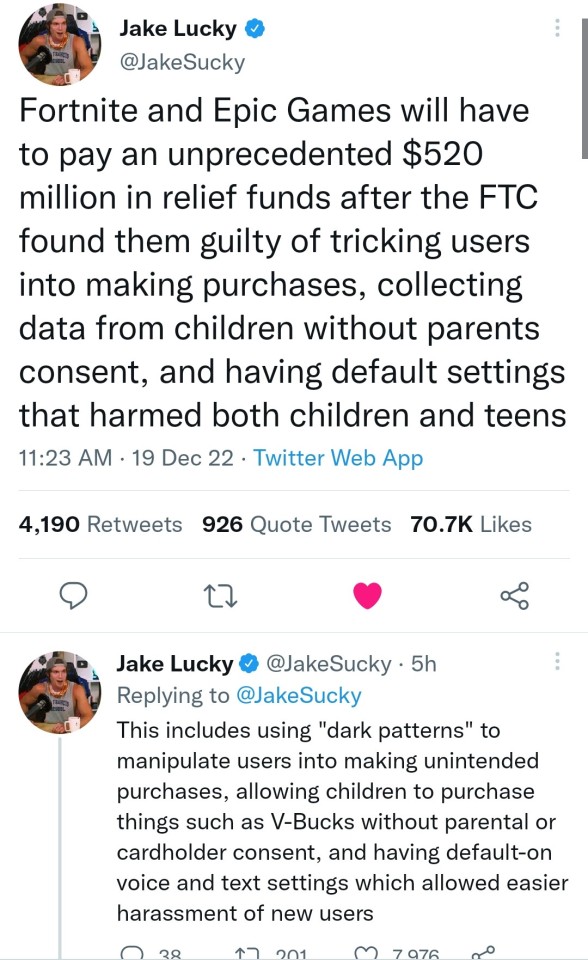#ftc
Text
Antitrust is a labor issue

I'm touring my new, nationally bestselling novel The Bezzle! Catch me SATURDAY (Apr 27) in MARIN COUNTY, then Winnipeg (May 2), Calgary (May 3), Vancouver (May 4), and beyond!

This is huge: yesterday, the FTC finalized a rule banning noncompete agreements for every American worker. That means that the person working the register at a Wendy's can switch to the fry-trap at McD's for an extra $0.25/hour, without their boss suing them:
https://www.ftc.gov/news-events/news/press-releases/2024/04/ftc-announces-rule-banning-noncompetes
The median worker laboring under a noncompete is a fast-food worker making close to minimum wage. You know who doesn't have to worry about noncompetes? High tech workers in Silicon Valley, because California already banned noncompetes, as did Colorado, Illinois, Maine, Maryland, New Hampshire, North Dakota, Oklahoma, Oregon, Rhode Island, Virginia and Washington.
The fact that the country's largest economies, encompassing the most "knowledge-intensive" industries, could operate without shitty bosses being able to shackle their best workers to their stupid workplaces for years after those workers told them to shove it shows you what a goddamned lie noncompetes are based on. The idea that companies can't raise capital or thrive if their know-how can walk out the door, secreted away in the skulls of their ungrateful workers, is bullshit:
https://pluralistic.net/2022/02/02/its-the-economy-stupid/#neofeudal
Remember when OpenAI's board briefly fired founder Sam Altman and Microsoft offered to hire him and 700 of his techies? If "noncompetes block investments" was true, you'd think they'd have a hard time raising money, but no, they're still pulling in billions in investor capital (primarily from Microsoft itself!). This is likewise true of Anthropic, the company's major rival, which was founded by (wait for it), two former OpenAI employees.
Indeed, Silicon Valley couldn't have come into existence without California's ban on noncompetes – the first silicon company, Shockley Semiconductors, was founded by a malignant, delusional eugenicist who also couldn't manage a lemonade stand. His eight most senior employees (the "Traitorous Eight") quit his shitty company to found Fairchild Semiconductor, a rather successful chip shop – but not nearly so successful as the company that two of Fairchild's top employees founded after they quit: Intel:
https://pluralistic.net/2021/10/24/the-traitorous-eight-and-the-battle-of-germanium-valley/
Likewise a lie: the tale that noncompetes raise wages. This theory – beloved of people whose skulls are so filled with Efficient Market Hypothesis Brain-Worms that they've got worms dangling out of their nostrils and eye-sockets – holds that the right to sign a noncompete is an asset that workers can trade to their employers in exchange for better pay. This is absolutely true, provided you ignore reality.
Remember: the median noncompete-bound worker is a fast food employee making near minimum wage. The major application of noncompetes is preventing that worker from getting a raise from a rival fast-food franchisee. Those workers are losing wages due to noncompetes. Meanwhile, the highest paid workers in the country are all clustered in a a couple of cities in northern California, pulling down sky-high salaries in a state where noncompetes have been illegal since the gold rush.
If a capitalist wants to retain their workers, they can compete. Offer your workers get better treatment and better wages. That's how capitalism's alchemy is supposed to work: competition transmogrifies the base metal of a capitalist's greed into the noble gold of public benefit by making success contingent on offering better products to your customers than your rivals – and better jobs to your workers than those rivals are willing to pay. However, capitalists hate capitalism:
https://pluralistic.net/2024/04/18/in-extremis-veritas/#the-winnah
Capitalists hate capitalism so much that they're suing the FTC, in MAGA's beloved Fifth Circuit, before a Trump-appointed judge. The case was brought by Trump's financial advisors, Ryan LLC, who are using it to drum up business from corporations that hate Biden's new taxes on the wealthy and stepped up IRS enforcement on rich tax-cheats.
Will they win? It's hard to say. Despite what you may have heard, the case against the FTC order is very weak, as Matt Stoller explains here:
https://www.thebignewsletter.com/p/ftc-enrages-corporate-america-by
The FTC's statutory authority to block noncompetes comes from Section 5 of the FTC Act, which bans "unfair methods of competition" (hard to imagine a less fair method than indenturing your workers). Section 6(g) of the Act lets the FTC make rules to enforce Section 5's ban on unfairness. Both are good law – 6(g) has been used many times (26 times in the five years from 1968-73 alone!).
The DC Circuit court upheld the FTC's right to "promulgate rules defining the meaning of the statutory standards of the illegality the Commission is empowered to prevent" in 1973, and in 1974, Congress changed the FTC Act, but left this rulemaking power intact.
The lawyer suing the FTC – Anton Scalia's larvum, a pismire named Eugene Scalia – has some wild theories as to why none of this matters. He says that because the law hasn't been enforced since the ancient days of the (checks notes) 1970s, it no longer applies. He says that the mountain of precedent supporting the FTC's authority "hasn't aged well." He says that other antitrust statutes don't work the same as the FTC Act. Finally, he says that this rule is a big economic move and that it should be up to Congress to make it.
Stoller makes short work of these arguments. The thing that tells you whether a law is good is its text and precedent, "not whether a lawyer thinks a precedent is old and bad." Likewise, the fact that other antitrust laws is irrelevant "because, well, they are other antitrust laws, not this antitrust law." And as to whether this is Congress's job because it's economically significant, "so what?" Congress gave the FTC this power.
Now, none of this matters if the Supreme Court strikes down the rule, and what's more, if they do, they might also neuter the FTC's rulemaking power in the bargain. But again: so what? How is it better for the FTC to do nothing, and preserve a power that it never uses, than it is for the Commission to free the 35-40 million American workers whose bosses get to use the US court system to force them to do a job they hate?
The FTC's rule doesn't just ban noncompetes – it also bans TRAPs ("training repayment agreement provisions"), which require employees to pay their bosses thousands of dollars if they quit, get laid off, or are fired:
https://pluralistic.net/2022/08/04/its-a-trap/#a-little-on-the-nose
The FTC's job is to protect Americans from businesses that cheat. This is them, doing their job. If the Supreme Court strikes this down, it further delegitimizes the court, and spells out exactly who the GOP works for.
This is part of the long history of antitrust and labor. From its earliest days, antitrust law was "aimed at dollars, not men" – in other words, antitrust law was always designed to smash corporate power in order to protect workers. But over and over again, the courts refused to believe that Congress truly wanted American workers to get legal protection from the wealthy predators who had fastened their mouth-parts on those workers' throats. So over and over – and over and over – Congress passed new antitrust laws that clarified the purpose of antitrust, using words so small that even federal judges could understand them:
https://pluralistic.net/2023/04/14/aiming-at-dollars/#not-men
After decades of comatose inaction, Biden's FTC has restored its role as a protector of labor, explicitly tackling competition through a worker protection lens. This week, the Commission blocked the merger of Capri Holdings and Tapestry Inc, a pair of giant conglomerates that have, between them, bought up nearly every "affordable luxury" brand (Versace, Jimmy Choo, Michael Kors, Kate Spade, Coach, Stuart Weitzman, etc).
You may not care about "affordable luxury" handbags, but you should care about the basis on which the FTC blocked this merger. As David Dayen explains for The American Prospect: 33,000 workers employed by these two companies would lose the wage-competition that drives them to pay skilled sales-clerks more to cross the mall floor and switch stores:
https://prospect.org/economy/2024-04-24-challenge-fashion-merger-new-antitrust-philosophy/
In other words, the FTC is blocking a $8.5b merger that would turn an oligopoly into a monopoly explicitly to protect workers from the power of bosses to suppress their wages. What's more, the vote was unanimous, include the Commission's freshly appointed (and frankly, pretty terrible) Republican commissioners:
https://www.ftc.gov/news-events/news/press-releases/2024/04/ftc-moves-block-tapestrys-acquisition-capri
A lot of people are (understandably) worried that if Biden doesn't survive the coming election that the raft of excellent rules enacted by his agencies will die along with his presidency. Here we have evidence that the Biden administration's anti-corporate agenda has become institutionalized, acquiring a bipartisan durability.
And while there hasn't been a lot of press about that anti-corporate agenda, it's pretty goddamned huge. Back in 2020, Tim Wu (then working in the White wrote an executive order on competition that identified 72 actions the agencies could take to blunt the power of corporations to harm everyday Americans:
https://www.eff.org/deeplinks/2021/08/party-its-1979-og-antitrust-back-baby
Biden's agency heads took that plan and ran with it, demonstrating the revolutionary power of technical administrative competence and proving that being good at your job is praxis:
https://pluralistic.net/2022/10/18/administrative-competence/#i-know-stuff
In just the past week, there's been a storm of astoundingly good new rules finalized by the agencies:
A minimum staffing ratio for nursing homes;
The founding of the American Climate Corps;
A guarantee of overtime benefits;
A ban on financial advisors cheating retirement savers;
Medical privacy rules that protect out-of-state abortions;
A ban on junk fees in mortgage servicing;
Conservation for 13m Arctic acres in Alaska;
Classifying "forever chemicals" as hazardous substances;
A requirement for federal agencies to buy sustainable products;
Closing the gun-show loophole.
That's just a partial list, and it's only Thursday.
Why the rush? As Gerard Edic writes for The American Prospect, finalizing these rules now protects them from the Congressional Review Act, a gimmick created by Newt Gingrich in 1996 that lets the next Senate wipe out administrative rules created in the months before a federal election:
https://prospect.org/politics/2024-04-23-biden-administration-regulations-congressional-review-act/
In other words, this is more dazzling administrative competence from the technically brilliant agencies that have labored quietly and effectively since 2020. Even laggards like Pete Buttigieg have gotten in on the act, despite a very poor showing in the early years of the Biden administration:
https://pluralistic.net/2023/02/11/dinah-wont-you-blow/#ecp
Despite those unpromising beginnings, the DOT has gotten onboard the trains it regulates, and passed a great rule that forces airlines to refund your money if they charge you for services they don't deliver:
https://www.whitehouse.gov/briefing-room/statements-releases/2024/04/24/fact-sheet-biden-harris-administration-announces-rules-to-deliver-automatic-refunds-and-protect-consumers-from-surprise-junk-fees-in-air-travel/
The rule also bans junk fees and forces airlines to compensate you for late flights, finally giving American travelers the same rights their European cousins have enjoyed for two decades.
It's the latest in a string of muscular actions taken by the DOT, a period that coincides with the transfer of Jen Howard from her role as chief of staff to FTC chair Lina Khan to a new gig as the DOT's chief of competition enforcement:
https://prospect.org/infrastructure/transportation/2024-04-25-transportation-departments-new-path/
Under Howard's stewardship, the DOT blocked the merger of Spirit and Jetblue, and presided over the lowest flight cancellation rate in more than decade:
https://www.transportation.gov/briefing-room/2023-numbers-more-flights-fewer-cancellations-more-consumer-protections
All that, along with a suite of protections for fliers, mark a huge turning point in the US aviation industry's long and worsening abusive relationship with the American public. There's more in the offing, too including a ban on charging families extra for adjacent seats, rules to make flying with wheelchairs easier, and a ban on airlines selling passenger's private information to data brokers.
There's plenty going on in the world – and in the Biden administration – that you have every right to be furious and/or depressed about. But these expert agencies, staffed by experts, have brought on a tsunami of rules that will make every working American better off in a myriad of ways. Those material improvements in our lives will, in turn, free us up to fight the bigger, existential fights for a livable planet, free from genocide.
It may not be a good time to be alive, but it's a much better time than it was just last week.
And it's only Thursday.

If you'd like an essay-formatted version of this post to read or share, here's a link to it on pluralistic.net, my surveillance-free, ad-free, tracker-free blog:
https://pluralistic.net/2024/04/25/capri-v-tapestry/#aiming-at-dollars-not-men
#pluralistic#labor#antitrust#trustbusting#noncompetes#indenture#ftc#matt stoller#david dayen#tapestry#luxury fashion#capri
205 notes
·
View notes
Text
Democrats deliver.
#democrats deliver#Biden delivers#FTC bans non compete agreements#ftc#never trump#republican assholes#republicans serve the rich
87 notes
·
View notes
Text
Paul Blest at More Perfect Union:
The Federal Trade Commission voted Tuesday to ban new noncompete agreements for all workers and make existing noncompetes null and void for everyone except senior executives. These agreements are used to restrict 30 million American workers from changing jobs or starting their own businesses due to claims that they could use “trade secrets” in their new roles.
Noncompete agreements can restrict job mobility based on geographic area (i.e., a doctor joining a new practice within 50 miles of their old one) or a time period after leaving the position (anywhere between several months to more than a year). They have been banned in multiple states in the past few years.
But the FTC has issued a uniform ban that will cover hundreds of millions of workers following a 180-day period for for-profit companies to enter into compliance. More than 26,000 comments were submitted on the rule, more than 25,000 of which supported a noncompete ban, FTC staff said Tuesday.
The FTC estimated that the new rule will increase workers’ wages by up to $488 billion over 10 years, which FTC staff said would mean a $524 increase in annual wages for the average worker. The FTC also estimated that the rule would lead to more than 8,500 new businesses per year.
“Right now workers are stuck in place because of these noncompetes,” FTC chair Lina Khan told More Perfect Union in an interview about the rule. “So even if they get a better job opportunity with higher wages, with better benefits, they can't actually switch jobs, which is bad for those workers. It's also bad for other workers who won't have the opportunities that are not being created because of these noncompetes.”
Five states have passed bans on noncompetes, not including New York, where lawmakers passed a ban last year that was then vetoed by Gov. Kathy Hochul. After Oregon banned noncompete agreements in 2008, researchers found, average hourly wages for all workers were boosted by up to 3 percent; the same analysis found that low-wage workers subjected to noncompetes saw a substantial negative impact on their wages.
The final rule differs from the proposal in that “senior executives,” those in a “policy-making position” making more than $151,000 per year, will still be subjected to noncompete agreements signed before the effective date of the new rule.
Since announcing the proposal in early 2023, the FTC’s rule has come under fire from the business lobby. The U.S. Chamber of Commerce said before Tuesday’s meeting that it will file a lawsuit to block the proposal as soon as Wednesday. A top Chamber official said earlier this week that the rule “opens up a Pandora’s box where this commission or future commissions could be literally micromanaging every aspect of the economy,” Bloomberg reported.
But the FTC argues that noncompete agreements are “an unfair method of competition” that affect both high- and l0w-wage earners. In the medical profession, nearly half of all physicians are subject to noncompete agreements, according to the American Medical Association, which backs the effort to end the practice. (The FTC estimated that the new rule will result in “$74-$194 billion in reduced spending on physician services over the next decade.”)
The Federal Trade Commission voted to ban competition-stifling noncompete agreements except for senior executives.
36 notes
·
View notes
Text
to help spread the word a lil, ask a mortician just put out a new video, this one specifically about proposed FTC regulation changes for U.S. funeral homes, and theres a comment period that closes October 10th, 2023 to ya kno. comment on em. tell em to help make funerals a lil cheaper.
youtube
I would really reccomend watching the video as she explains it a lot better, but the TLDR is that the FTC is thinking of adding some rules to the regs on how funeral homes disclose a couple of things, like prices (making them list prices online, so you dont need to drive to 7 diff funeral homes to price shop the day your son died, and cause hidden prices=more expensive), and make it clearer WHEN embalming is required (that is, that its NOT required by law, but might be required by the funeral home themselves)
like i said, watch the vid for a better explaination, but both of those things contribute to funerals being Mega Fucking Expensive, so. if you feel like it, go to the FTC and tell em to implement the changes!
comment period ends october 10th, 2023!
#ask a mortician#caitlyn doughty#funerals#ftc#federal trade commission#uspol#funeral industry#buzzy#Youtube
802 notes
·
View notes
Text

source 1
source 2
source 3
#destiel meme#destiel meme news#united states#us news#news#amazon#fta#federal trade commission#ftc#eat it jeffrey#jeff bezos
524 notes
·
View notes
Text
I realized I've never drawn Dmitri, so I redrew the one scene in Fleeing the Complex


I'm so normal about this game I swea
#the henry stickmin collection#thsc#fleeing the complex#ftc#dmitri petrov johannes#the wall thsc#dmitri henry srickmin#fanart
196 notes
·
View notes
Text
The writing strike having a tentative deal, the SAG still going strong, and the FTC is now suing Amazon??? 👍👍🙌🙌👏👏👏👏
#support the wga#i stand with the wga#wga strike#wga solidarity#wga strong#sag aftra#sag strike#sag aftra strike#sag after strong#sag afra strike#get fucked Jeff bezos!!#Amazon#ftc#the ftc#pro union#anti trust laws#union solidarity#union strong#support unions
287 notes
·
View notes
Text
Microsoft reneged on promises it made in court during its Federal Trade Commission (FTC) antitrust trial in 2023 by laying off 1,900 employees in late January, according to the FTC. FTC lawyer Imad Abyad filed a letter with the U.S. Court of Appeals for the Ninth Circuit on Wednesday, effectively telling on Microsoft. “This newly-revealed information contradicts Microsoft’s representations in this proceeding,” the FTC lawyer wrote.
Microsoft announced on Jan. 15 that it was laying off 1,900 workers from its gaming division — around 8% of that part of the company. A large portion of those layoffs were at the newly acquired Activision Blizzard. The percentage of Activision Blizzard layoffs has not been made public, but at least 899 of that 1,900 worked out of Activision Blizzard’s California offices, according to public records.
#news#labor news#gaming news#tech news#the ftc#ftc#federal trade commission#microsoft#activision blizzard#blizzard#2024 layoffs#tech industry layoffs#gaming industry layoffs#layoffs
139 notes
·
View notes
Text
jfc the hubris that is the wind beneath elon’s wings
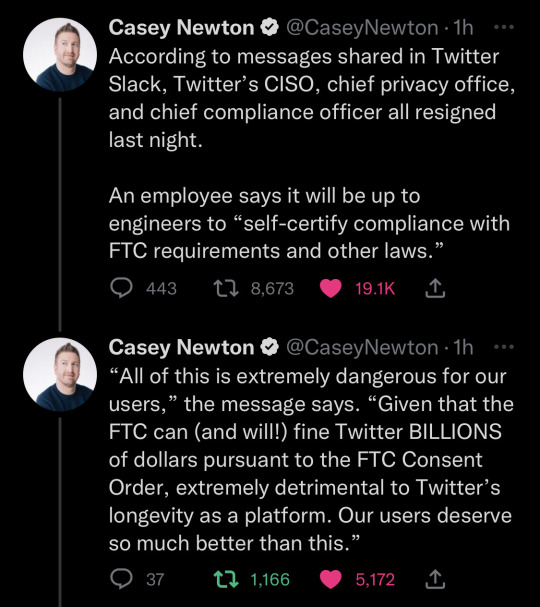
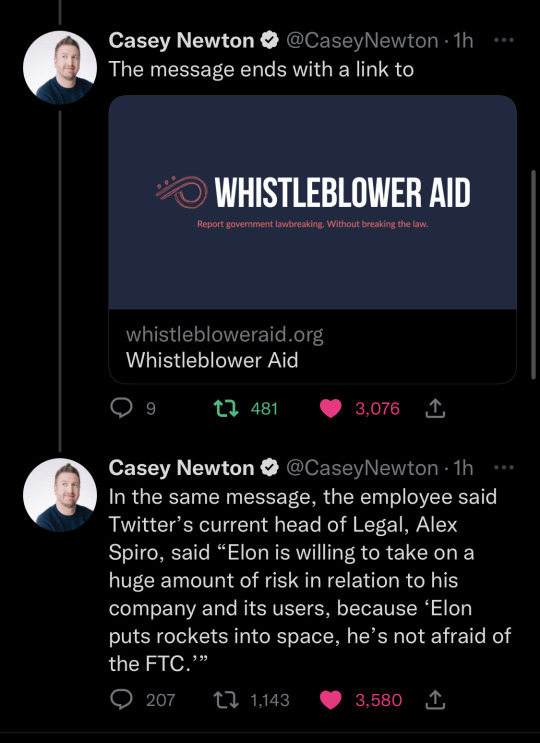
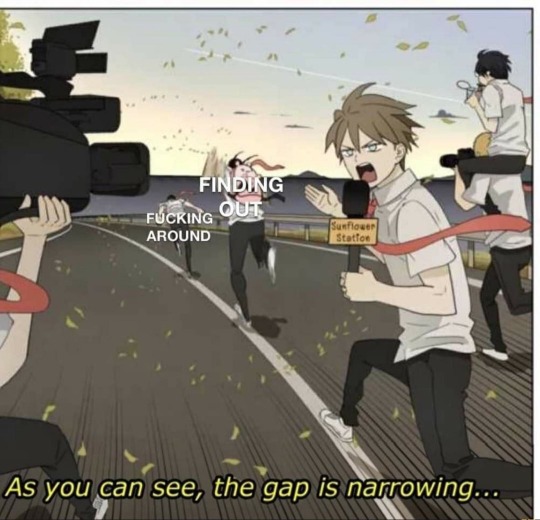
#elon#elon musk#elongated muskrat#tird app#twitter migration#twitter#fuck elon musk#own actions meet consequences#twitter meltdown#elon twitter#a hit tweet#FTC
1K notes
·
View notes
Text

For the Cameras | Chapter 11: All Eyes on Us
a collaboration fic with @muttpeeta
Halloween. Right. In all the drama of the past twenty-four hours, he’d completely forgotten to tell her. He palmed his forehead. “Bollocks. That reminds me—Arianne's having a big Halloween bash at her place next weekend. The whole cast and crew are invited. She does this every year, apparently. It’s a big media circus. I wasn't planning to go, honestly, but Marg said it would be a good thing for us to do together. You wanna come with me?”
Her eyes widened. “Oh, sure—I mean, am I actually invited, though?” she fretted.
He snorted. “You’re invited if I say you are.” Arianne might not like it, but she knew better than to throw a fit about it.
She smiled. “OK. I guess that saves me the trouble of having to plan my own party.” She frowned abruptly. “Of course, that only leaves a week to come up with a costume.”
He didn’t get the problem. “Plenty of time, right?” She gave him a dubious look, and he held up his hands. “Or not.”
“I’ll figure something out,” she said, mostly to herself.
“Well, when you do, let me know, so we can coordinate,” he told her, surprising her.
“Like…a couple’s costume?”
When she put it like that, it did sound pretty intimate. Feeling his face grow warm, he scratched his beard. “Aye, I suppose so. It’ll be good press, right?”
Read it on Ao3. Thank you!
#jonerys#jonerys fanfic#jonerys fanfiction#jon snow x daenerys targaryen#jon x daenerys fanfiction#for the cameras#ftc
130 notes
·
View notes
Text
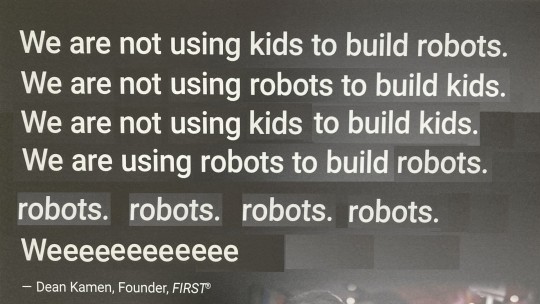
I think Dean Kamen is on to something here
33 notes
·
View notes
Text

first thing you gotta do after defeating a necromancer inside his evil lair made of undead flesh is make out on a coffin right next to his corpse right
#scribblings#ftc#hartline#reynin#dnd#dnd oc#original character#oc art#artists on tumblr#dnd art#in hartlines defense: he was experiencing some amnesia at the time bc he failed a saving throw#reynin however has no excuse#blood
38 notes
·
View notes
Text

#mike hernandez#dennis mcgrath#skateboarding#san francisco#ftc#ftcsf#adidas#adidas superstar#superstar
48 notes
·
View notes
Text

some more emos bc someone said i'm really putting the 'emo' in hemospectrum 😭y'all think i can go down the list?!
these r fcfs! holds r 5 days only since i need 2 get ready for college now... im tempted 2 keep that red one so bad n the yellow AUGH I HATE BEING ALT!!!
1. star racer - OPEN - $30
2. spraypaint - CLOSED
TERMS OF SERVICE unda the cut
payments upfront in USD through venmo is preferable, but ko-fi and paypal are fine!
you acknowledge this is a digital artwork! nothing physical will be sent to you.
you can repost my art as long as you credit me as the artist!
non-commercial use of my artwork only.
please do not put my art on physical merchandise and do NOT use my art as an NFT.
i reserve the right to use my artwork as examples for my portfolio!
#zeebart#fantroll#homestuck oc#art#fantroll art#homestuck#homestuck fantroll adoptables#fantroll adoptables#fantroll adoptable#homestuck adoptable#adoptme#adopts#adoptables#adopt#character adopt#oc adopt#adoptable#fantroll design#ftc#fantroll oc#homestuck fantroll#fantroll adopts#fantrolls#fantroll community#homestuck fantroll adoptable#open adopts#fantroll adopt#homestuck adopts#cue me using 1 million tags
48 notes
·
View notes
